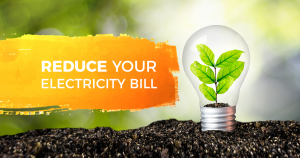Energy Saving – General Information & Advice to Tenants
What is energy efficiency?
In a nutshell, it’s about cutting your energy use while still enjoying a good quality of life.
How to save energy and reduce your bills
Want to save energy and money around the home but not sure where to start? There are plenty of lifestyle changes you can make that can have a massive effect on your consumption. Here are some energy-saving tips you can put into action right away to cut costs and help fight climate change. Small changes can make a Big difference. It’s surprising how much you can achieve by making a few easy adjustments to your home and daily habits. Just be consistent and you’ll soon see the savings build up.
Try these ideas to get started:
- Turn off the lights – Do it whenever you leave the room. And fit energy efficient bulbs. They’re more expensive initially but they use much less energy and replacing all bulbs in your home with these could save about £40 a year on your electricity bills. So, they’re well worth it.
- Unplug your chargers – Leaving your phone, tablet or laptop charger plugged in when you’re not using it drains money from your pocket. You’re just paying for it to waste energy by getting warm.
- Switch off your TV – Leaving your TV on standby means it’s still using energy. And experts have calculated that UK households waste an average of £30 a year powering appliances they’re not even using.
- Move your sofa – Furniture pressed up against a radiator stops heat reaching the room. Move things an inch or two away and better air circulation will have your room getting warm and cosy much faster.
- Close the curtains – When the sun goes down, heat starts to escape. Drawing the curtains or closing the blinds will help to keep the warmth in. Especially if you have draughty, old-fashioned sash windows.
- Stay warm, cut costs. Turning your thermostat down by just 1°C can save you as much as £80 per year!
- Layer up. Wearing more jumpers, socks and slippers around the house and putting an extra blanket on the bed means you won’t be tempted to turn the heating up.
- Turn the pressure down. A high-pressure power shower is a luxury but you’d be surprised how much water they use – sometimes even more than a bath.
- Don’t leave the tap running. Turn the tap off when you’re brushing your teeth or washing your face – it can waste more than six litres of water per minute while it’s running.
- Turn the lights off. When you leave a room, don’t leave the lights on unless you’re coming back.
- Run cold washes in the washing machine. Washing your clothes at 30 degrees rather than 40 can save you a third on your washing bills – you’ll have to do a hot wash sometimes but sticking to 30 whenever possible can make a world of difference.
- Use halogen lightbulbs outside. These bulbs consume around a quarter less electricity than incandescent bulbs without losing any brightness, so they’re a no-brainer for any exterior lighting.
- Put exterior or security lights on timers. Your neighbours won’t thank you for keeping your exterior lights on all night, and neither will your wallet. Make sure any exterior lights are on a timer or activated by motion so they only come on when needed.
- Opt for an electric lawnmower. Electric mowers are much less hassle to use than petrol-powered mowers and are obviously more energy-efficient as well. Try and invest in one if you can
- Educate the household. Energy will only be saved if everyone in the house recognises the importance of saving it. If you’ve got kids, try and turn energy saving into a game to teach them why they should remember to switch things off.
- Stop overpaying on energy – Compare gas and electricity prices to make sure there aren’t any cheaper options you could switch to.
Saving energy in the kitchen
Your kitchen is where you use a lot of energy as you cook, wash up, make tea and put leftovers into the fridge or freezer. The kitchen is a key area of the home when it comes to energy wastage, with a huge amount of energy to be saved when cooking, if you know where energy is most likely to be wasted.
Here are some tips for smart savings:
- Boil water in the kettle for cooking – It’s quicker and uses less energy than heating up a full pan on the stove – so you’ll have dinner on the table sooner.
- Cook with a moderate flame – You just need it to be big enough to heat the base of the pan. If it’s licking up the sides, you’re wasting gas and money.
- Keep your oven closed – Opening the door when food’s cooking lets heat out and uses more energy. It slows down cooking too – so use the window to see how your food is doing.
- Switch your oven off early – Most dishes will keep cooking a little longer while the oven temperature slowly cools, thanks to good thermal insulation.
- Defrost your fridge and freezer – We all know we should do it regularly to keep ice under control. That way everything stays efficient. But it’s still easy to put it off.
- Upgrade your old fridge-freezer -This tip’s more expensive upfront. But an A+++ rated model can save around £190 in energy over its lifetime compared to an A+.
- Use a microwave – Heat up food in the microwave as often as possible – it’s generally the most efficient way to heat up and cook food because its relatively small size means that a stronger level of heat can be focused on whatever’s being cooked.
- Be water-conscious – When you’re boiling food in a pan, make sure you only use the amount of water needed to cover the amount of food you’re cooking, because boiling water you don’t need can waste a lot of energy.
- Take it slow – To save energy (and lessen the need to cook when you get home after work), try using a slow cooker to cook throughout the day – they only use about as much energy as a light bulb.
- Leave enough defrosting time – Defrost frozen food in the fridge overnight or while you’re at work. Defrosting food in advance typically halves the cooking time and also means that you don’t need to use the energy of a microwave to defrost more quickly.
- Don’t go for metal trays in the oven – Use glass or ceramic dishes in the oven wherever possible because they retain heat better than their metal counterparts, making them the most energy-efficient option.
- Get the fans out – Invest in a fan-assisted or convection oven, which circulates heat throughout the oven. This means the heat doesn’t have to be as high as it would in a normal oven.
- Use the right size pan – Always use a pan which is the right size for the amount of food you are cooking – this means you won’t waste energy while heating a bigger surface area than you need.
- Use the right size hob – When you’ve selected your pan, make sure you use the right size hob for it. A bigger burner will waste energy and a pan that’s too big will take longer to get to the right temperature.
- Keep heating rings clean – Similarly, make sure you keep your heating rings as clean as possible – any food that sticks to the ring will absorb heat, which will make it less efficient.
- Use the right ring for the right thing – If you’re going to use the oven, cook a few meals at a time to get the most out of having your oven on and hot, especially if lunch-prepping for the week ahead is your kind of thing.
Saving money doing the laundry
Because of the amount of water used in washing clothes and the amount of energy that goes into drying them, there’s a few ways you can bring down your energy usage and financial spend when doing the laundry. If you have a big family, it probably seems like the washing machine is on all the time.
So here are some tips to cut your energy use and help reduce your bills.
- Always put a full load in the machine, and try to do the week’s laundry in one go
- Use the economy setting on your washing machine to save water and energy
- Air-dry your laundry outside instead of using an energy-hungry tumble dryer
- Don’t dry clothes on radiators. It just makes your boiler work harder
- Keep your tumble dryer’s fluff filter clean so heat can flow freely inside the drum
- Put eco-balls in your tumble dryer to spread your clothes so they dry more quickly
- Shrink your bills, not your clothes. 90% of a washing machine’s energy expenditure is spent heating the water, so if you wash your clothes at 30-40°C you’re saving a significant amount of money.
- Hang up your laundry. Air-dry your laundry rather than tumble-drying it, particularly if the weather is warm or windy.
- Save yourself ironing time. Take your clothes out of the dryer before they’re completely dry – they’ll iron much quicker and you’ll use less energy on your drier.
How to save energy in your bathroom
Do you love a long soak in the bath? Or are you in and out of the shower in minutes? Changing your bathroom routine could cut your energy consumption.
Try these simple ideas:
- Shorten your shower time. A long shower – especially a power shower – can use enough hot water to fill a bath
- Unplug your toothbrush charger. Most electric toothbrushes only need one charge a week to keep your smile sparkling
- And your hair straighteners. Don’t leave shavers or hair straighteners on standby charge either. Turn them off instead
- Air-dry your hair. Why not try the natural look for a change? It’ll save energy and maybe even a bit of time
How to save gas around the home
There’s a lot you can do to use less gas around your home – here are just a few of them.
- Install a smart meter. If your energy supplier offers smart meters to customers like you, it’s a no-brainer to install one. By clearly indicating where you’re spending the most on your energy, you can take steps to cut down usage wherever possible and save money.
- Upgrade your gas appliances. With more energy-efficient appliances on the market than ever before, make sure you’re investing in the models which use gas in the most efficient way.
How to save electricity around the home with our money-saving tips
Similarly to gas, there are a few changes you can make around your home that could help cut down your average electricity usage and the amount of money you have to spend.
- Use energy-saving lightbulbs. A lot of electricity is used in lighting your home, but you can use less energy by investing in specific energy-saving lightbulbs, which are readily available. You won’t lose any light, and you’ll save money too.
- Use energy-efficient electric appliances. Some appliances, like dishwashers, run on electricity as opposed to gas, so it’s worth seeking out the most energy-efficient models to ensure you’re not spending more than you need to. Look for models rated A+++ by the EU as a general guide.
- Don’t leave anything plugged in that isn’t being used. A lot of wasted electricity occurs through leaving appliances plugged in that aren’t being used. Even charger cables that don’t have anything plugged into them, but are still connected to the socket, can waste electricity, so it’s often better to err on the side of caution by unplugging anything that isn’t being actively used and switching the power off at the plug.
How does saving energy help the environment?
Cutting carbon emissions and saving natural resources are high on everyone’s list. The UK Government has recently adopted the recommendations of the Committee on Climate Change’s report and announced plans to reach net zero greenhouse gas emissions by 2050.





